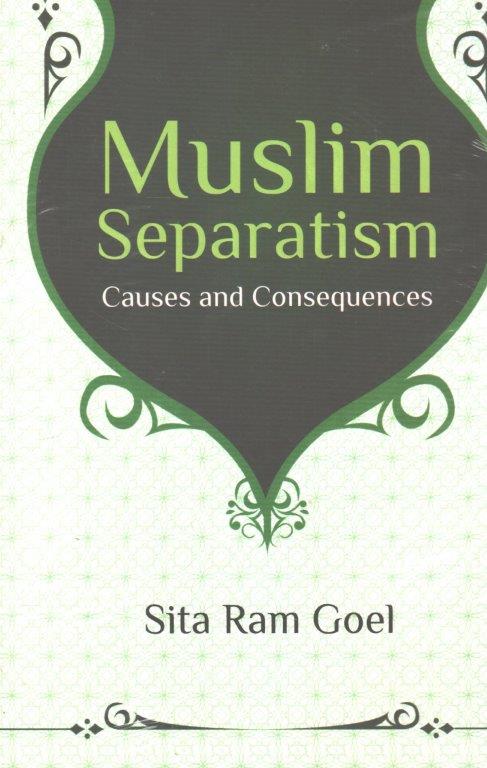Muslim Separatism: Causes and Consequences by Sita Ram Goel - Review by Abhishek Desikan
Certain characteristics characterize SRG’s writing: concise content, scathing criticism, meticulous detail, and bludgeoning impact. Muslim Separatism: Causes and Consequences is no exception.
This is a review of the seminal book, ‘The Tragic Story of Partition’ by H.V. Seshadri. SRG, while broadly agreeing with the clarity and retelling of H.V. Seshadri, adds his own opinions where he differs from the author. The book delves into the causes that led to the partition of India and how the Hindu society and the leaders of the Indian National Congress failed and continue to fail to understand the consciousness of Islam and the sinister nature of the ‘residues of Islamic imperialism’ - the people and movement that emerged post the downfall of the Mughal empire.
SRG is a master at both rising up the patriot within us while making us hang our heads in shame when we realize how the misjudgments and lack of insight into the mind of the enemy led to the bloody massacre of an ancient civilization and its people. He provides a continuity of the stream of thought among Muslims right from the fall of the Mughal empire to reclaim India as a whole and places all of their actions before and during the freedom struggle in that context. From the Wahabbi movement inspired by Shah Waliullah, followed by Ahmad Shah Abdali, Abdul Aziz, Syed Ahmed Barelvi, Titu, and Dudhu Mian, to finally the father of the two-nation theory, Sir Syed Ahmed Khan, SRG traces the underlying motive and cause of jihad until partition. He laments how the national leadership under the Indian National Congress failed to have any sense of historical perspective and thus kept losing ground to the Muslims as they sided for and against the British at their convenience.
It is important to note that SRG gives credit where due, primarily to the British for their meticulous study of Indian history, geology, and scriptures and rigorously documenting them to lead us to write our history in a more modern and ordered manner. He praises the shining beacons of our national resurgence, starting with Maharishi Dayananda Saraswati, Bankim Chandra Chatterjee, Swami Vivekananda, and Sri Aurobindo. It is unfortunate that despite such stalwarts trying to shake us from our slumber and open our eyes to the greatness of our spiritual and cultural heritage, the leaders of the Indian National Congress were blinded by the promises and ideologies purported by the British and the Muslim league.
One might wonder what the purpose of reading such books might be today, but cliched as it might sound, history does repeat itself. There are many lessons to be learned from India’s history, particularly around the independence movement and the partition. For India to progress as a nation and re-assert its civilizational strength and culture, it must learn from the mistakes it made in its past to rise to a confident future.

Also published here.